Search Engine Optimization (SEO) is crucial to any online marketing strategy. You need to understand AI SEO basics for WordPress if you use this platform and want your website to rank highly on search engines.
Finding the keywords your target audience is searching for is part of the AI SEO basics for WordPress.
In this article, we’ll show you AI SEO basics for WordPress and how to use ChatGPT and Ubersuggest to find the best keywords for your website.
What is ChatGPT?
ChatGPT is an AI-powered language model developed by OpenAI.
It’s capable of generating human-like responses to natural language input. In addition, it’s trained on a massive dataset of text from the internet, which makes it a valuable tool for content creators and marketers.
You can use it to generate many ideas and basic content drafts. But you must understand SEO basics for WordPress, edit the text, and add your voice and personal experience.
Learning SEO basics for WordPress and using ChatGPT
The first step in learning SEO basics for WordPress and using ChatGPT to find keywords is considering your buyer persona.
Who are they, and what do they need? What keywords and phrases do they use to search for information on the internet?
Once you’ve identified your audience, you can use ChatGPT to generate keyword ideas for your website.
AI SEO and Seed keywords
Seed keywords are foundational to any keyword research process, as they are central to the niche your website operates in. Here are some prompts to guide a GPT-powered chatbot in identifying seed keywords for a specific website:
- Website Analysis:
- Prompt: “Analyze the website [URL] and identify the core topics and services offered to generate a list of potential seed keywords.”
- Competitor Reference:
- Prompt: “Identify primary competitors for the website [URL] and extract seed keywords based on their core offerings.”
- Customer Interaction:
- Prompt: “Analyze customer reviews, queries, and comments on [URL] to identify common phrases and terms that could serve as seed keywords.”
- Industry Trends:
- Prompt: “Examine recent industry trends related to the content on [URL] to propose a list of relevant seed keywords.”
- Content Review:
- Prompt: “Review the most popular pages and posts on [URL] to extract potential seed keywords based on the content.”
- Social Media Analysis:
- Prompt: “Analyze the social media profiles linked to [URL] to identify recurring themes and terms that can be used as seed keywords.”
- Forum and Community Interaction:
- Prompt: “Review discussions and threads in industry forums and communities related to the website [URL] to identify potential seed keywords.”
- Product/Service Analysis:
- Prompt: “List the primary products or services offered on [URL] and generate seed keywords based on these offerings.”
- Industry Jargon:
- Prompt: “Identify common industry jargon and terminology relevant to the content on [URL] to develop a list of seed keywords.”
- User Behavior Analysis:
- Prompt: “Analyze user behavior and the terms they use while interacting with the website [URL] to identify potential seed keywords.”
- Seed keywords
- Prompt: “Based on the previous results, generate 20 seed keywords for the website [URL]”
AI SEO and Long-tail keywords for the specific URL
If you are looking to incorporate a specific URL within the prompts to guide the chatbot towards generating keywords tailored for that particular website, here’s how you could adapt the prompts: To use these prompts, you need to use plugins in CHAT GPT or Browse with Bing Vision. Here are the prompts for the seed keyword: digital marketing:
- Seed Keyword Expansion:
- Prompt: “Generate a list of long-tail keyword variations based on the seed keyword ‘digital marketing’ specifically for the website [URL].”
- Competitor Keyword Analysis:
- Prompt: “Identify keywords that competitors of the website [URL] are ranking for in the digital marketing space.”
- Question-based Keywords:
- Prompt: “List questions potential customers of the website [URL] might ask regarding digital marketing services.”
- Local Keyword Generation:
- Prompt: “Generate locally-focused keywords for the website [URL] which is a digital marketing agency operating in Macedonia.”
- Keyword Difficulty Analysis:
- Prompt: “Analyze the keyword difficulty for the list of generated keywords for the website [URL] and suggest the ones with low competition.”
- Intent-based Keyword Discovery:
- Prompt: “Identify keywords with a high intent for purchasing digital marketing services from the website [URL].”
- Seasonal Keyword Identification:
- Prompt: “Generate a list of seasonal keywords relevant to the digital marketing campaigns of the website [URL].”
- Industry Trend Keywords:
- Prompt: “Identify trending keywords in the digital marketing industry for the year 2023 that are relevant to the website [URL].”
- Related Vertical Keywords:
- Prompt: “List keywords related to digital marketing but in adjacent industries such as content marketing or social media marketing for the website [URL].”
- Keyword Classification:
- Prompt: “Classify the generated keywords for the website [URL] into informational, navigational, and transactional categories.”
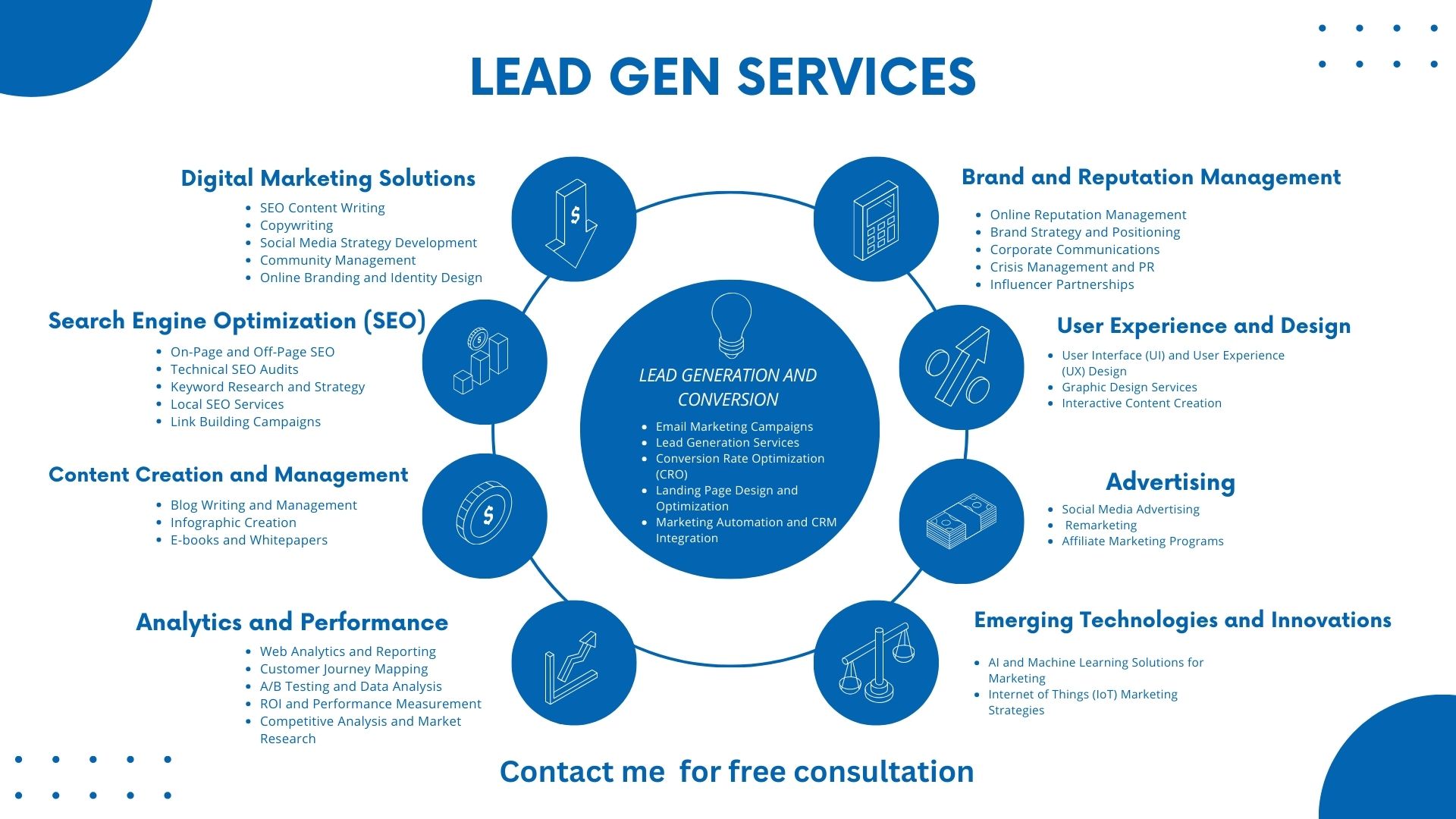
Keyword difficulty and competition are essential factors to consider when developing an SEO strategy.
Keyword difficulty refers to the level of competition for a particular keyword, while competition refers to the number of websites currently targeting that keyword.
Understanding these factors is crucial for creating an effective SEO strategy and improving your website’s search engine rankings.
Here are some reasons why keyword difficulty and competition are essential for SEO:
Identifying low-competition keywords:
Keywords with low difficulty and competition are easier to rank for and can help you attract targeted traffic to your website.
By identifying these keywords, you can create content that meets the needs of your audience and optimize your website for those keywords.
Avoiding high-competition keywords:
High-competition keywords can be very difficult to rank for, especially if you’re just starting with SEO and learning the SEO basics for WordPress.
However, by understanding the competition for specific keywords, you can only target manageable ones and focus on less competitive ones you can rank for.
Creating a targeted content strategy:
By analyzing the difficulty and competition of keywords in your industry, you can develop a content strategy that targets the right keywords and meets the needs of your audience.
This can help you attract more traffic to your website and improve your search engine rankings.
Staying ahead of the competition:
Understanding the competition for specific keywords can help you stay ahead of your competitors. By understanding SEO basics for WordPress, monitoring the competition, and analyzing their strategies, you can develop a better SEO strategy and attract more traffic to your website.
Measuring your success:
By tracking the difficulty and competition of your target keywords, you can measure the success of your SEO strategy.
You can see how your website ranks for those keywords and adjust your strategy accordingly.
Now that you know what to focus on, it is time to use Chat GPT and Ubersuggest to find which keywords to rank for.
As an example, we will use the website CPV One.
Let’s start
How to Find Seed keywords using Chat GPT
You don’t need all the prompts I put in this article. I recommend using at least five of them to get more targeted seed keywords tailored to your website.
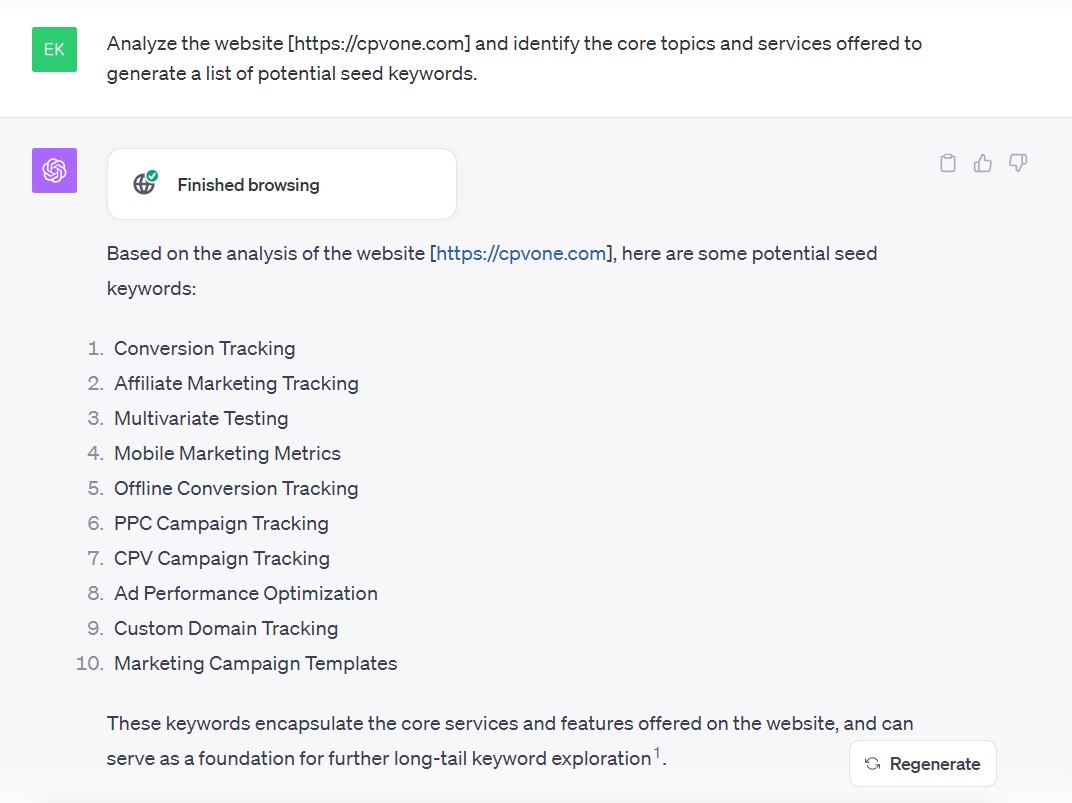
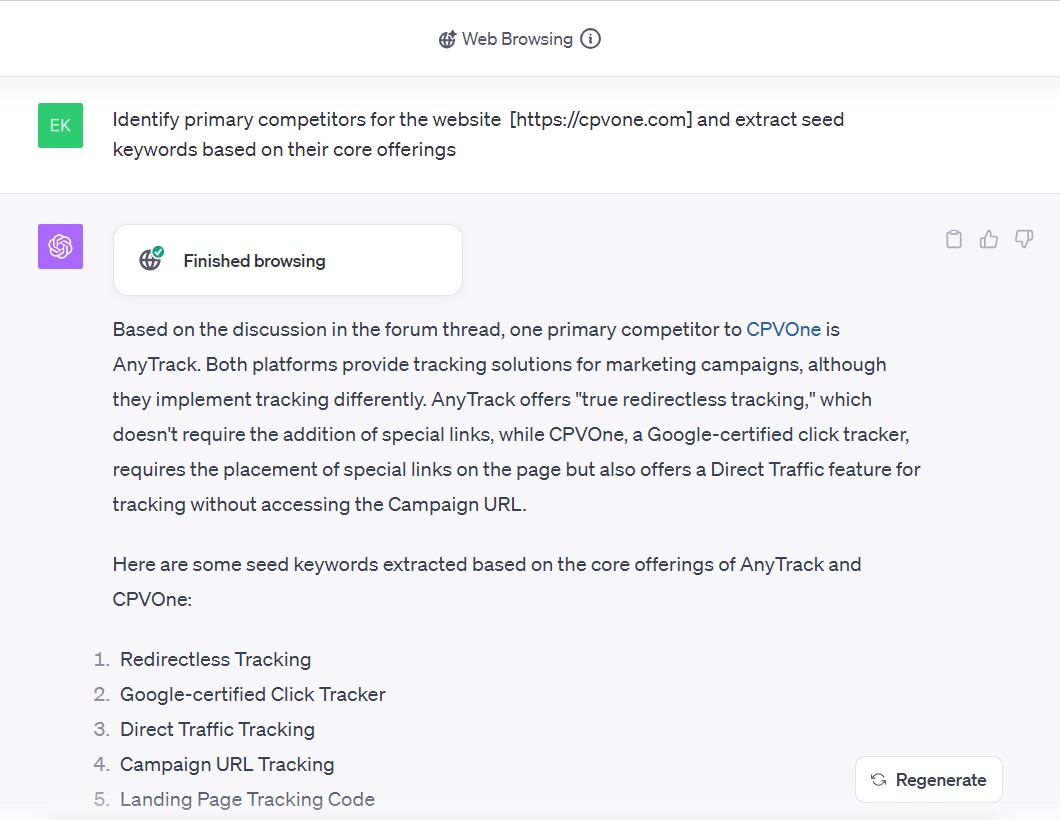
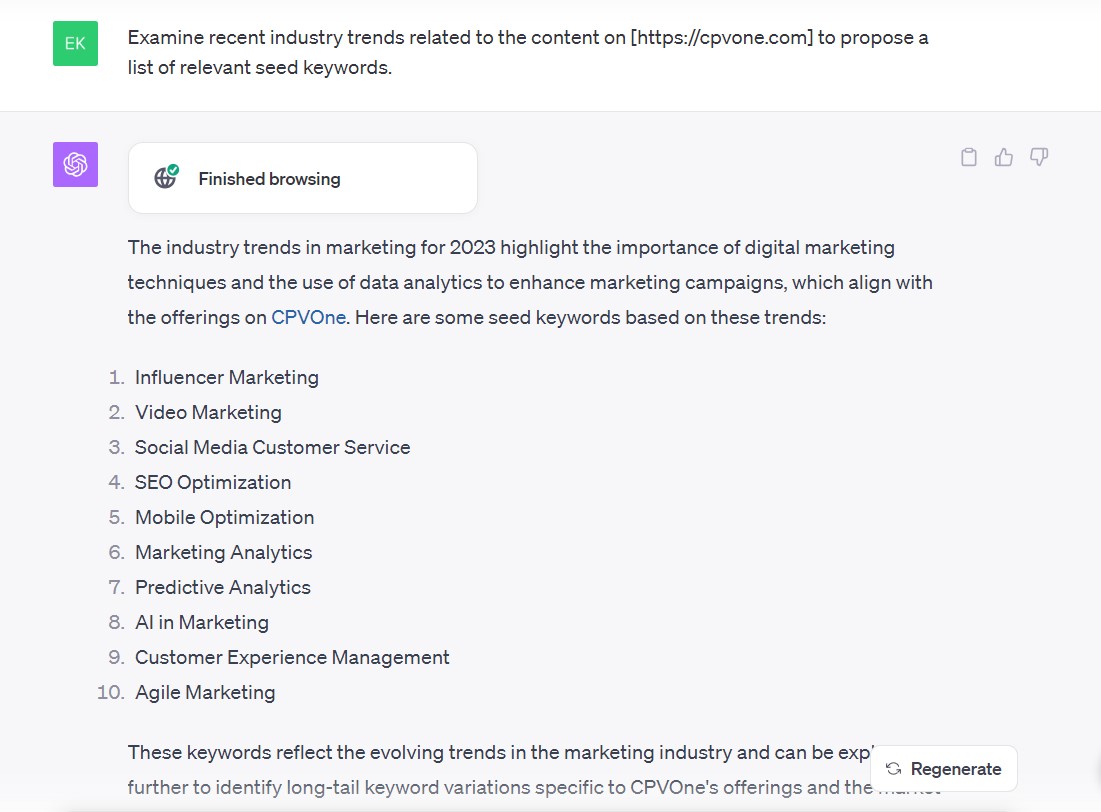
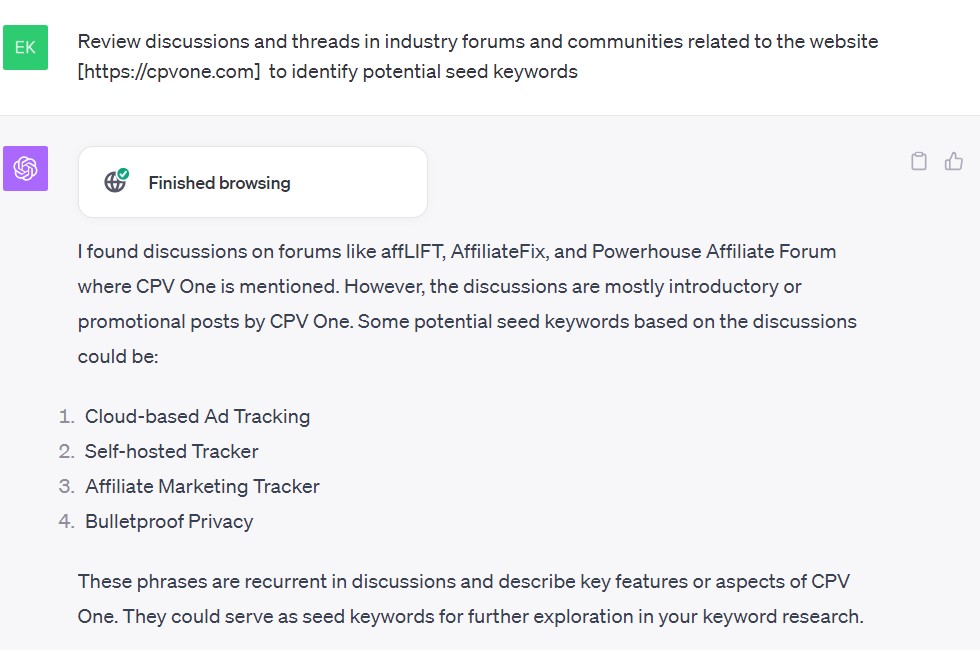
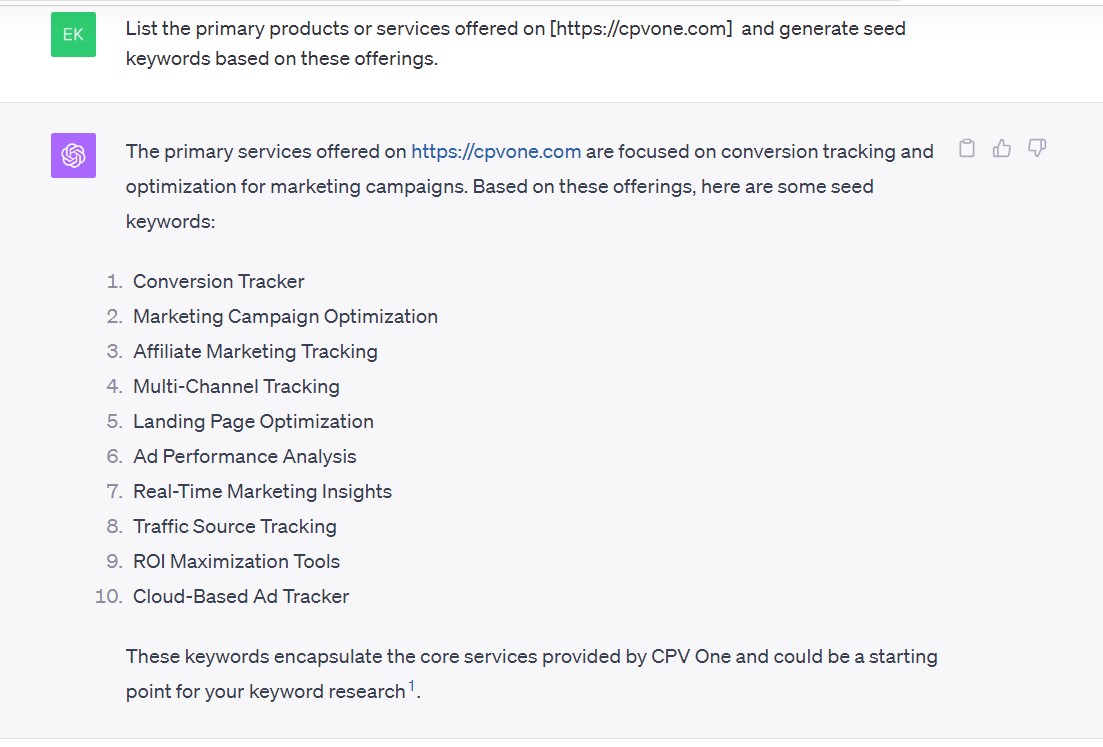
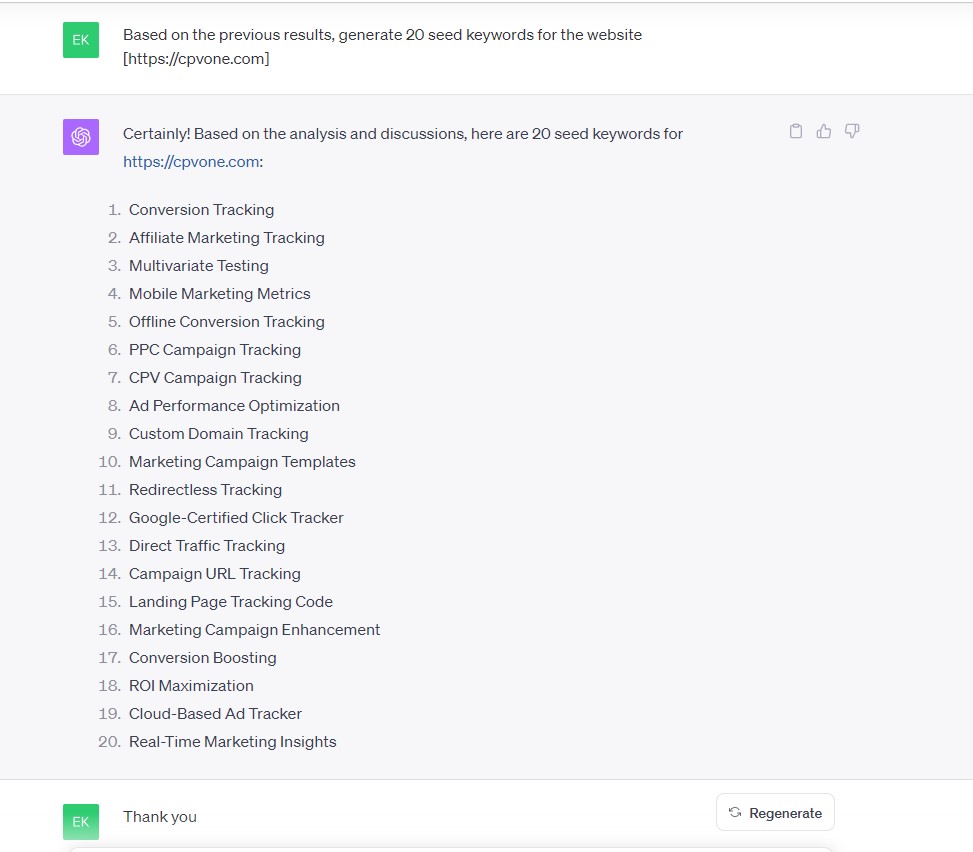
AI SEO for Long Tail Keywords and Topical authority
Topical authority in SEO refers to a website’s endeavor to become the definitive source on specific topics.
The aim is to assist search engines in recognizing a website’s topical relevance, enhancing its chances of ranking for related keywords.
The prompts for the long-tail keywords will help you get ideas and build your tropical authority.
For example. Let’s take the first seed keyword and check it in Ubersuggest.
![]()
If CPV One wants to rank for this keyword, it will be more challenging. This keyword has an SEO difficulty of 79. The first ten pages ranked for this keyword have a domain authority of 82. The monthly search volume is 480, and the trend is stagnant.
But nothing is impossible. They will invest in backlinks and write quality articles on this topic, and over time, they will reach their goal.
So, let’s start with the first prompt from Long Tail Keywords. As you can see, Ghat GPT will give you ideas. All these long-tail keywords can be separate articles for the seed keyword.
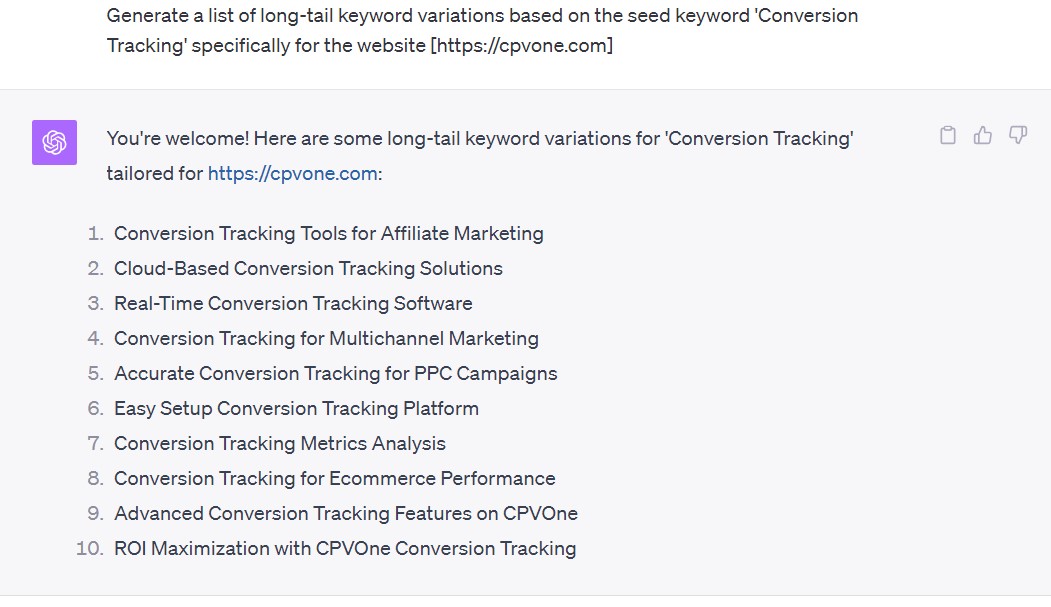
Another way to get ideas for writing articles about specific topics is to use the AlsoAsked website:
When you put the keyword in the search bar, you will get questions people ask on search engines according to that keyword
If you want to build your authority and your website, you can write articles according to all these questions.
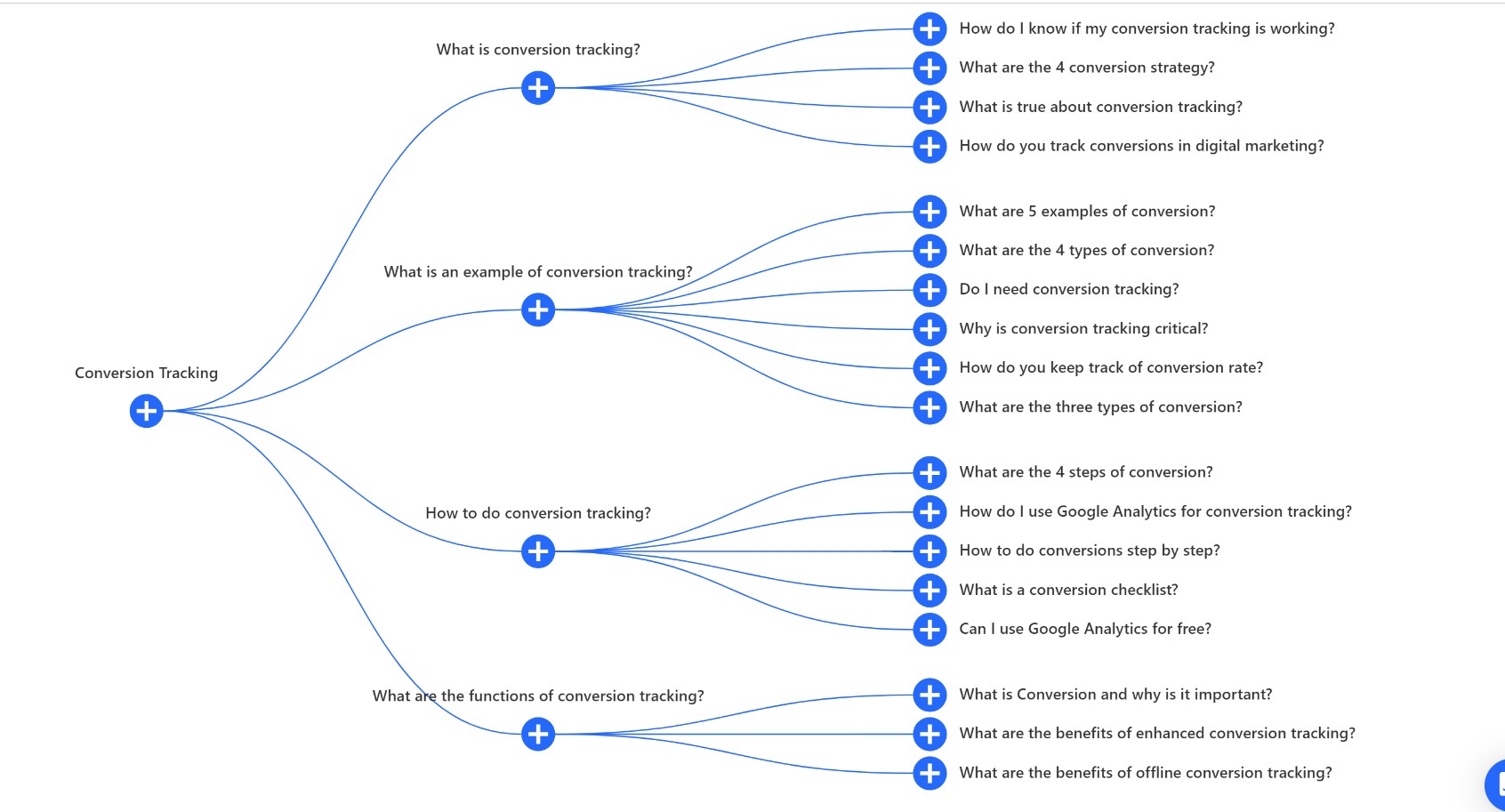
You can get keyword ideas from Ubersuggest.
When you use SEO tools like Ubersuggest, you can see the keyword difficulty and how many people search for that keyword. You can see the trend. So, you will start building authority with the keywords you can rank for and that are connected to your seed keyword.

Also, you need to consider competition keywords. Your goal is to outperform the competition, so you need to analyze their articles and write better on given keywords.
As you saw, you can’t just pick up the keyword you think you can rank for and start writing an article.
Before you start writing, you need a deep analysis of the website, its target audience, and its competition.
AI SEO with Chat GPT can help you get seed keywords and ideas, but you must check all of them and find BOFU long-tail keywords.
Yes, this is a time-consuming process, but the chances of ranking your articles are much bigger than writing randomly on the keywords you think you can rank for.
Conclusion
In conclusion, mastering AI SEO basics for WordPress is pivotal for online visibility. Leveraging tools like ChatGPT and Ubersuggest enhances keyword discovery, aiding in crafting targeted strategies for superior ranking. Analyzing keyword difficulty and competition, alongside a deep dive into your website, audience, and rivals, is instrumental for SEO success.
CPV One’s case underscores the journey toward ranking for competitive keywords, revealing the necessity of a structured, analytical approach.
Embark on your AI SEO journey with us at https://lead-gen-marketing.com. Contact us to utilize our AI SEO and AI for lead generation services and transform your website’s SEO landscape today.


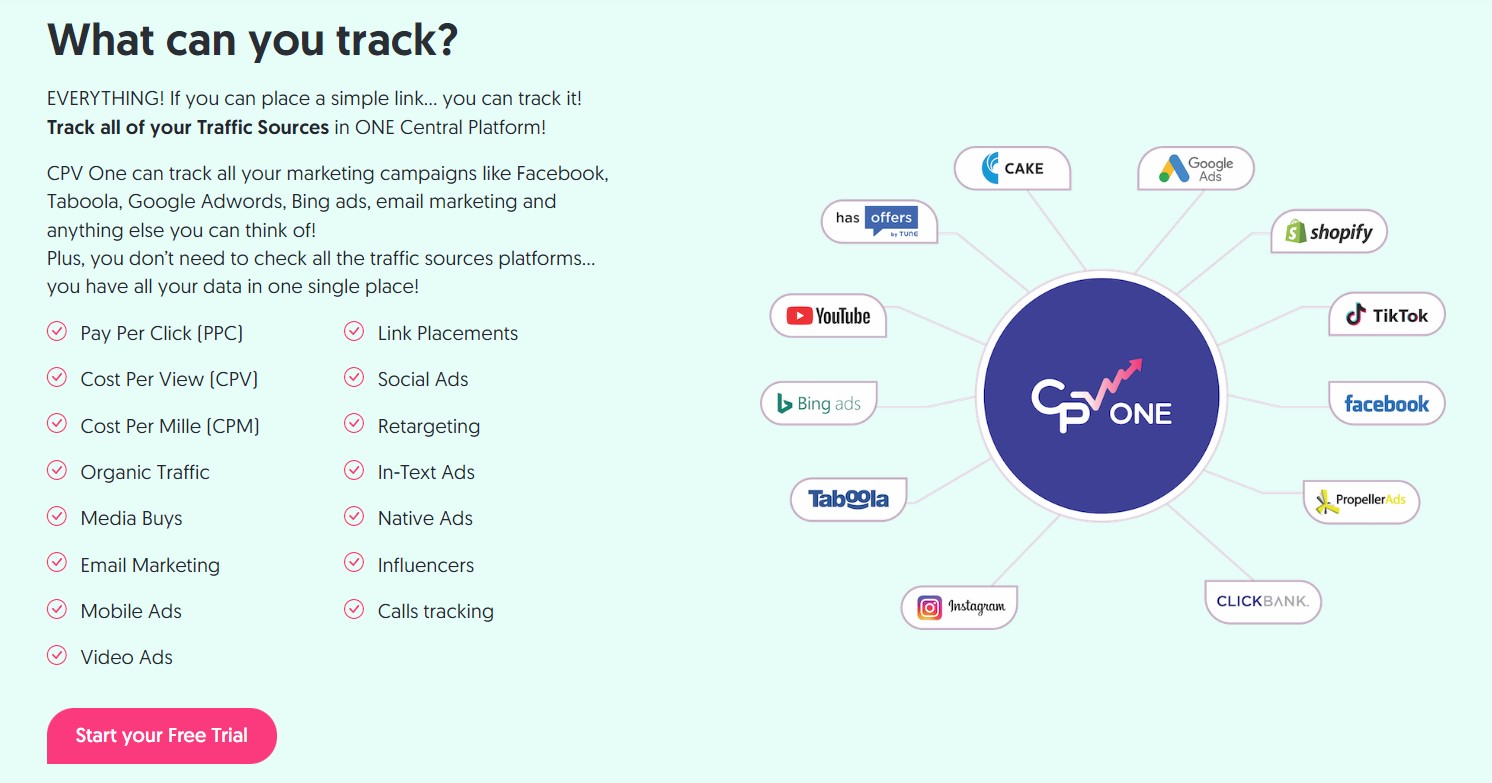
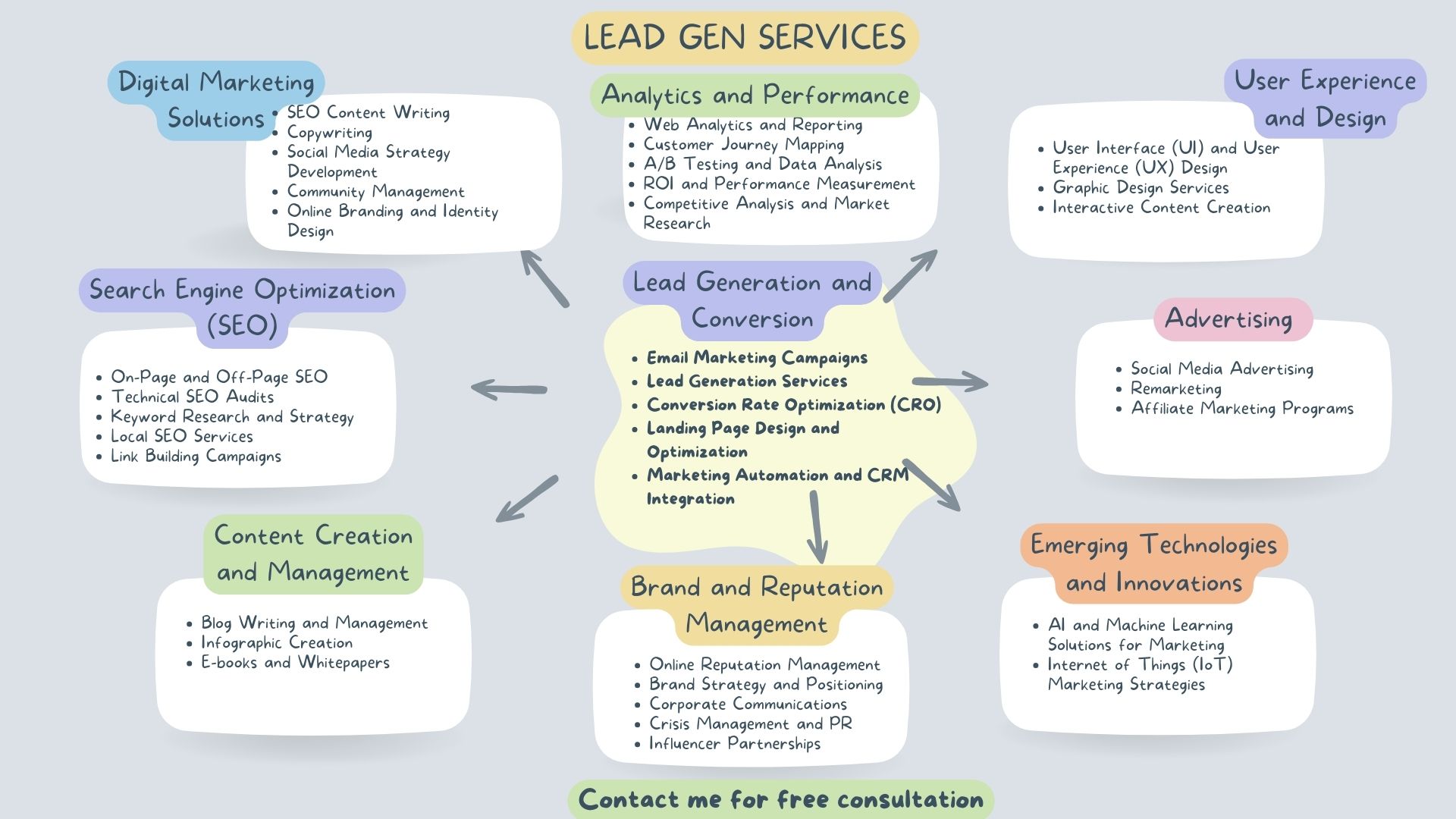
No responses yet